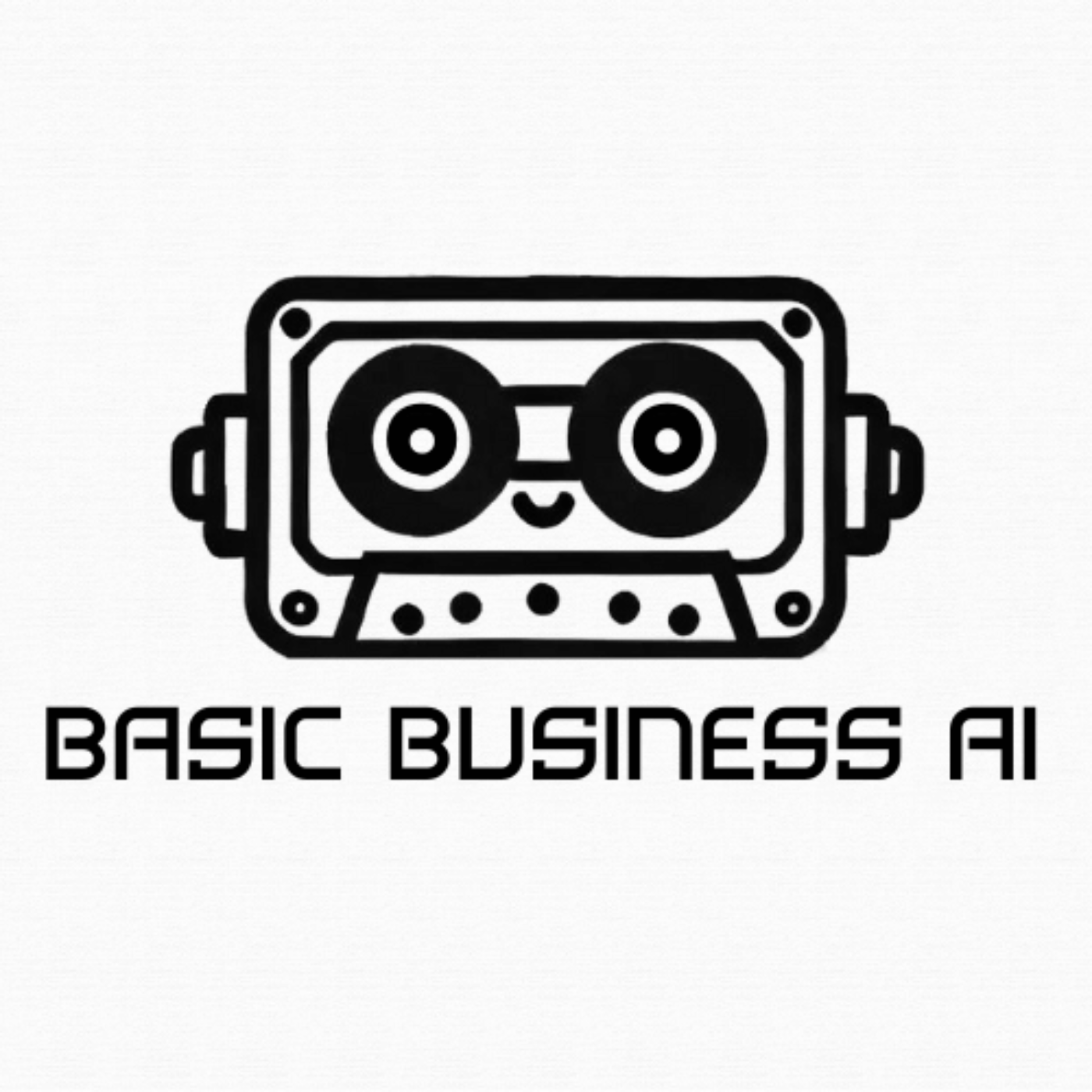[00:00:00] Speaker A: Welcome to Basic Business AI, a podcast dedicated to simple AI strategies for businesses who don't want to get an advanced tech degree or hire some marketing bro. I'm your host, Josh Thomas. You can find me on all social media.
We bring on regular business owners like you and me to discuss practical strategies, ideas and perspectives about AI without getting too far into the weeds of the tech. BBAI is sponsored by Anabots. We build AI with heart. Our trained AI sales and support assistants work twenty four seven to increase sales, reduce costs, and free up your time so you can focus on growing your business. If you want to install a 24/7 near human sales and support team in your business, go to Anabots AI to learn more. We do have 100% free options and low cost options to fit any budget. Once more, that's Anabots Aihdenhe. Today's guest is Jennifer Fisher. She's a travel blogger who helps trauma survivors heal through solo travel, hiking, camping, nature, inner child work and mindfulness. Determined to heal her own trauma, she applied everything she learned across multiple modalities and is now recovered and trigger free. She has helped thousands of readers overcome fears of solo travel through topics on abandonment, grief, anxiety, sexual abuse, generational trauma, fear control, and ancestral healing art. She's on a mission to help trauma survivors achieve emotional and mental freedom and begin their own self healing solo travel journeys. That's awesome, Jennifer. Welcome to basic Business AI. I have one really important question for you. What, in your opinion, is the reshaping the future of AI for your business specifically.
[00:01:56] Speaker B: Which is a really big question.
So jumping right in, what is going to happen? What, you know, what is our world? Are we going to look like the Jetsons? You know, if we're just talking down to earth?
That's what I wonder, because it starts to spiral when I was listening to what your company does and how there's been so much media, movies and shows around this topic for years, and it does seem to be upon us and it's very exciting.
But what is the implications? What is it going to mean?
Everybody wants to know.
Robots going to replace humans? And aren't they already, you know, are they already? It's just, it's very fascinating. I feel, you know, excited about it and I know some people are very nervous and I'm just like, you know, munching popcorn, watching to see what's going to happen next.
[00:03:05] Speaker A: Yeah, right. And, you know, you pointed out a couple of things and I think one of the, the biggest drivers of our perspective and some of our fears and concerns about AI is what we've seen in fiction in Hollywood and books and science fiction over the last several decades. I know one of the first impressions I ever got about AI was from Terminator two back in 1991, and that planted the seed that AI is going to destroy humanity. It remains to be seen if that's the case or not.
[00:03:45] Speaker B: Well, if it does, we're all going to be participating in it because from my experience, we just love it too much. It's Pandora's box. And I know I've heard on the news, and I'm not really into the news, but I know that on the upper levels of know who runs the country and the big names, they have the same questions, too, but it's already out of the box. So, you know, we just watch, like, watch the train. It's either going to stay on the tracks or it's going to derail.
[00:04:19] Speaker A: You know, we, we did a presentation about AI a while ago, and we were doing some research on other emerging technologies from the past century or so. And it's, what's interesting is there were political cartoons about Edison's light bulb. Like, not sure if we really need that, Tom. Like, that's what people were saying back in the day when the light bulb was invented. And the same thing about the Internet. There's a very famous big headline that we said is Internet may be a passing fad as millions give up on it. And that was in 2000.
And so we're quick to dismiss new emerging technology. But like you said, it's out of the bag. Pandora is out of the box. You can't put it back in.
[00:05:15] Speaker B: Yeah. And I think being able to talk about it, use it, learn about it, that's the best way to see how you feel about it. I personally love Aih, not all AI, but I do love most what I love, I love a lot.
[00:05:34] Speaker A: So let's talk about some ways that you're harnessing and embracing AI in your business, and some might say a travel blogger specifically, who's helping trauma survivors heal through solo travel. I'm not thinking about AI for that, but you are. And so let's make that connection. How are you integrating AI into that kind of business?
[00:05:59] Speaker B: Yeah, I thought the same thing when I was listening to the introduction. Like, it's like apples and oranges, you know?
But I'm a person. I'm a trauma survivor. I'm like the real regular person who is helping other regular people. And I love AI. So how I use it, I use it for brainstorming ideas. I use it for research. Well, personally, when I say AI, I use chat GPT, and I pay for the paid version for my business.
It generates ideas, it brainstorms for me, it will fact check for me.
And as much as I love it for my business, and I do need it for my business, I write my own articles, but I do get my ideas and I get like, outlines from chat, but I use it just as much in my own life, too. It's just an ongoing connection.
[00:07:05] Speaker A: Yeah. And so I'm curious, when you say you use it to generate ideas, there's a lot of different ways to do that. And so a lot of your income and your business comes from writing words. And sometimes we're having some writer's block, we're not really sure what to do or what to say. So could you walk through a little bit of your process on how do you use chat CPT as a tool to create those ideas?
[00:07:32] Speaker B: So it was definitely taboo to reveal whether or not you used AI to write. And many writers, bloggers, they're the same or split.
I was learning about blogging from a person who was very openly for AI.
I would say she's probably a bit of, you know, I guess a renegade in coming out and saying, all right, you can judge me. But she was like one of the first to really, you know, to say, yeah, I use it and I'm not going to stop using it. And certainly a lot more have come out.
And when I say ideas, it's more as, like, okay, I'm very basic when I speak to chat, you know, I'm like, I'm thinking, I want to do this. You know, give me ten ideas that people are searching for right now. So things like that, if I know I want to write on an attraction, something that I'm not even going to go into the weeds of whether people write places they've been or like, I don't write about anywhere I haven't been. It's not, I wouldn't do that because honestly, the topic of trauma survivor, and it's on my blog, like a blog in black and white, that if I'm inauthentic, if you can't trust me, how are you going to heal from me, you know? So I'm probably honest to a fault, you know, um, like beyond. So anyway, I'll, I'll ask chat to give me, um, sorry, I'm going to take a sip of water.
[00:09:19] Speaker A: Yeah, that's okay. And so while you're, while you're doing that, uh, you know, I, the, the idea and the the comment about being authentic, I think disclosing that you are using tools to help you with this is part of that authenticity and designing and creating trust with your audience. And I think as long as you're telling the truth, very few people are going to fault you for doing whatever you need to do to get your job done.
[00:09:47] Speaker B: I hope so. That's the goal. So if I'm, I was just in England, and there was a couple places that I went, and I wanted to get some more, just more background on the history of where I was. And so that was an example. So I went to this house. It was a historic house, and I did a guided tour. And as I listened, I was very surprised, pleasantly surprised, on the level of feminism that went into creating and maintaining this historic house. It was owned by two women, cousins, and they went to a lot of lengths to protect it from, in the 18 hundreds, what was very much oppressed and around property for women owning property. So I went in and I said, you know, I typed in to chat, you know, like, give me more. And so there might be that I need more words. You know, it might be that I need more words. It also might be that I need more ideas. Like, sometimes at the end of a thread, it will generate, like, almost like an faq on the topic, you know, as far as, like, things that I didn't think about. Another thing, we're generating ideas and information for the blog. Is that, like, a good mentor I can get? Well, it, it makes me a lot better writer, you know, because I wouldn't have said things in a certain way. And then when I read what comes back to me, of course I'm, I have to edit it. I'm, I'm not going to leave it like that. I would not leave it like that. Um, you know, but regardless, it makes me a better writer because what I notice is that it sparks ideas in me that, things that I wouldn't have thought of.
A lot of times it'll go into areas that I wouldn't think of or in depths that I wouldn't think of.
Now, when it comes to different kinds of posts, sometimes my posts are specifically on, like, solo travel to, um, heal fear and control, or grief and loss and things like that. That's my experience. Like, what I will like to do is mix it up where, like, okay, you know, I think people do need to hear the information in a way that's understandable. And I'm, you know, I'm the best writer that I can be, but sometimes chat can make it sound a lot more succinct, you know, a hundred percent. And that's the point. You know, people are busy and they want information that's, you know, going to bed, you know, honoring their time. So I can put sections in like maybe two or three sentences about, you know, the theory behind the psychology and the trauma strategy. And then I back it up with all of my examples, you know, so this is what happened when I was in Arizona, you know, so it's, it's hopefully to temper it between, you know, theory and, you know, reality.
[00:13:02] Speaker A: Okay, awesome. I love that. And so tell us a little bit more about where somebody can learn more about you and who a great target would be for you to engage with. Who's listening to this podcast now so.
[00:13:18] Speaker B: You can find
[email protected] Jen J e n ndehdemdev Fisher. Fisher and books is just books. You know, I wanted to be a writer, and then I learned to book travel, and then just happy ending. I got both. I got to be a writer, write books, and book travel. So that's where people can find me.
[00:13:45] Speaker A: Awesome. Great. So we're going to wrap up from here. Thanks so much to our guest, Jen Fisher, for coming on and sharing a little bit of wisdom about how she uses AI for practical uses to get her blog going. And for those of you who want to engage with her and learn more about what she does, you can go to jennfisherbooks.com. that's j e n n f I s h e r books, just like it's spelled.com. if you run a business of any size and you have some ideas or strategies around the topic of AI, we'd love to have you on a future episode as well. We interview business owners of all levels of experience and exposure to AI so we can represent all voices, especially the 80% to 90% of us who are curious about AI but not trying to be tech geniuses, you can apply for a future episode by going to Basicbusinessai.com. and one more time, if you want to install a sales and support team that actually has a heart for less than 10% the cost of a single employee, get yourself an anabot. You can learn more at anabots AI. We'll see you next time here on basic Business AI. And by the way, if you like this episode, tell your friends. See you later.



